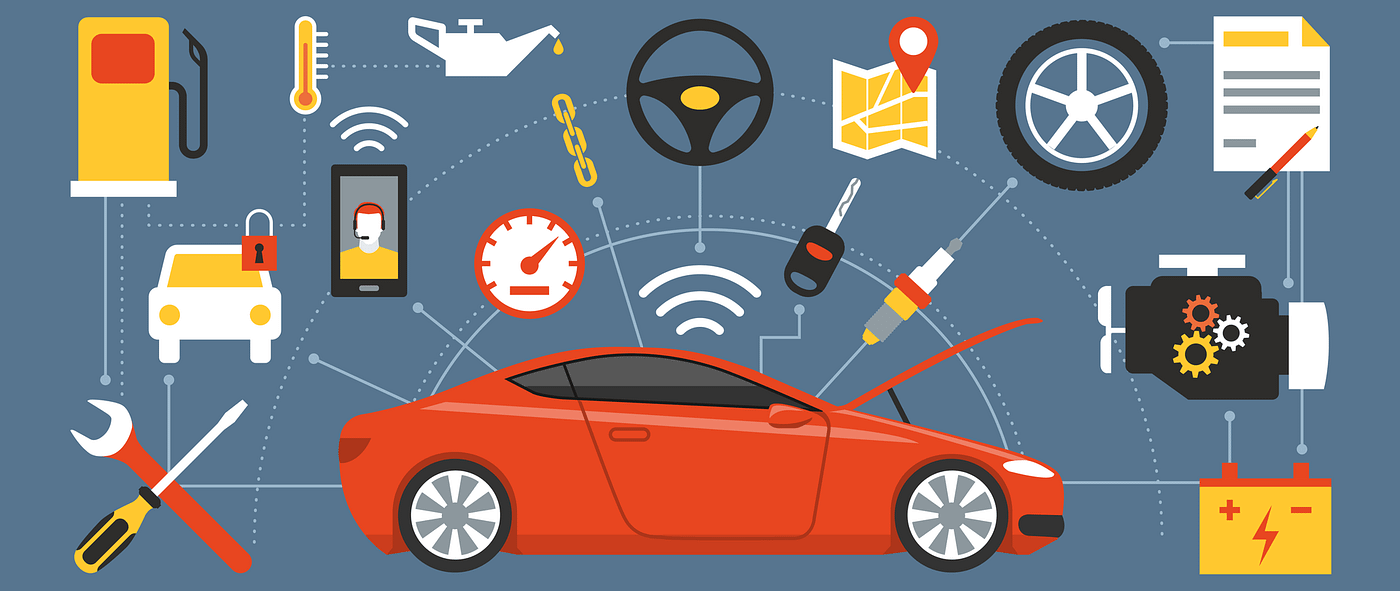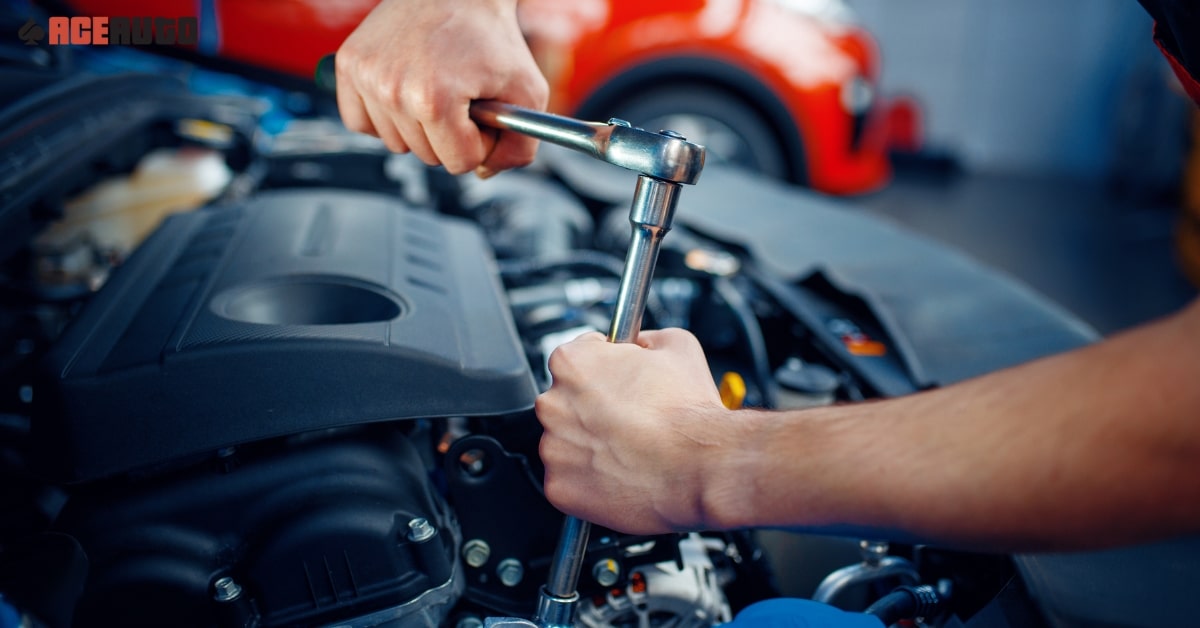All Categories
Featured
A vehicle getting too hot can be a demanding scenario, especially if it occurs all of a sudden. High engine temperatures can result in serious damage otherwise resolved quickly. Knowing what to do when your cars and truck overheats and understanding how to stop it can save you from pricey repair services and ensure your security when traveling.
![]()
What to Do If Your Auto Overheats. Draw Over Securely. As quickly as you notice signs of getting too hot-- such as heavy steam climbing from the hood, a spiking temperature gauge, or alerting lights-- draw over to a risk-free place. Transform off the engine instantly to stop additional damage.
Switch Off the air conditioner and Switch On the Heating unit. If you're not able to pull over right away, turn off the air conditioning to decrease engine lots and turn on the heating unit. This redirects heat far from the engine and into the cabin, which can assist reduce the engine temperature temporarily.
Open the Hood (with Caution) Wait on the engine to cool before opening up the hood. Opening it too quickly can reveal you to scalding vapor or warm liquids. Once it's safe, inspect the engine for evident indications of trouble, such as leaking coolant or a broken radiator hose.
Inspect the Coolant Degrees. Include it to the tank or radiator as soon as the engine has actually cooled down if you have coolant or water in your lorry. Avoid including cold water to a hot radiator, as it can cause cracking.
![]()
Require Assistance. Contact a tow truck or roadside aid if you're incapable to resolve the issue or detect. Driving with an overheated engine can lead to considerable damages, such as a blown head gasket or deformed engine elements.
How to Prevent Your Cars And Truck from Overheating. Check Coolant Degrees Regularly. Guarantee your car always has the proper quantity of coolant. Low coolant degrees are just one of one of the most usual causes of overheating. If required., frequently examine the coolant reservoir and leading it off.
Evaluate Radiator and Tubes. Look for fractures, leaks, or loose connections in the radiator and hose pipes. Change any broken components without delay to avoid coolant leaks.
Maintain Your Cooling System. Flush and replenish the air conditioning system as suggested in your vehicle's proprietor manual. Gradually, old coolant can lose its performance and fail to safeguard the engine from overheating.
Display the Thermostat and Water Pump. A malfunctioning thermostat or water pump can disrupt the cooling system's function. Have actually these elements evaluated during routine maintenance to catch problems early.
Avoid Straining Your Automobile. Extreme weight puts extra pressure on the engine and air conditioning system. Maintain your lots within the manufacturer's suggested limits.
Enjoy the Temperature Level Gauge. Take note of your temperature level gauge, specifically during hot weather condition or when increasing high slopes. If the gauge begins to climb up, take preventative measures such as decreasing rate or shutting off the air conditioner.
Verdict. Performing promptly and safely can stop additional damages to your engine. With appropriate care, you can keep your engine running efficiently and stay clear of the trouble of an overheated automobile.

What to Do If Your Auto Overheats. Draw Over Securely. As quickly as you notice signs of getting too hot-- such as heavy steam climbing from the hood, a spiking temperature gauge, or alerting lights-- draw over to a risk-free place. Transform off the engine instantly to stop additional damage.
Switch Off the air conditioner and Switch On the Heating unit. If you're not able to pull over right away, turn off the air conditioning to decrease engine lots and turn on the heating unit. This redirects heat far from the engine and into the cabin, which can assist reduce the engine temperature temporarily.
Open the Hood (with Caution) Wait on the engine to cool before opening up the hood. Opening it too quickly can reveal you to scalding vapor or warm liquids. Once it's safe, inspect the engine for evident indications of trouble, such as leaking coolant or a broken radiator hose.
Inspect the Coolant Degrees. Include it to the tank or radiator as soon as the engine has actually cooled down if you have coolant or water in your lorry. Avoid including cold water to a hot radiator, as it can cause cracking.

Require Assistance. Contact a tow truck or roadside aid if you're incapable to resolve the issue or detect. Driving with an overheated engine can lead to considerable damages, such as a blown head gasket or deformed engine elements.
How to Prevent Your Cars And Truck from Overheating. Check Coolant Degrees Regularly. Guarantee your car always has the proper quantity of coolant. Low coolant degrees are just one of one of the most usual causes of overheating. If required., frequently examine the coolant reservoir and leading it off.
Evaluate Radiator and Tubes. Look for fractures, leaks, or loose connections in the radiator and hose pipes. Change any broken components without delay to avoid coolant leaks.
Maintain Your Cooling System. Flush and replenish the air conditioning system as suggested in your vehicle's proprietor manual. Gradually, old coolant can lose its performance and fail to safeguard the engine from overheating.
Display the Thermostat and Water Pump. A malfunctioning thermostat or water pump can disrupt the cooling system's function. Have actually these elements evaluated during routine maintenance to catch problems early.
Avoid Straining Your Automobile. Extreme weight puts extra pressure on the engine and air conditioning system. Maintain your lots within the manufacturer's suggested limits.
Enjoy the Temperature Level Gauge. Take note of your temperature level gauge, specifically during hot weather condition or when increasing high slopes. If the gauge begins to climb up, take preventative measures such as decreasing rate or shutting off the air conditioner.
Verdict. Performing promptly and safely can stop additional damages to your engine. With appropriate care, you can keep your engine running efficiently and stay clear of the trouble of an overheated automobile.
Latest Posts
Discover Affordable Auto Repairs with Montclare’s Exclusive Service Specials
Published May 27, 25
1 min read
Check Out Montclare Auto Repair’s Highly Requested Auto Repairs and Why Drivers Choose Them
Published May 25, 25
1 min read
Find Out Why Chicago Drivers Choose Montclare Auto Repair for Dependable Service and Big Savings
Published May 24, 25
1 min read
More
Latest Posts
Discover Affordable Auto Repairs with Montclare’s Exclusive Service Specials
Published May 27, 25
1 min read
Check Out Montclare Auto Repair’s Highly Requested Auto Repairs and Why Drivers Choose Them
Published May 25, 25
1 min read
Find Out Why Chicago Drivers Choose Montclare Auto Repair for Dependable Service and Big Savings
Published May 24, 25
1 min read